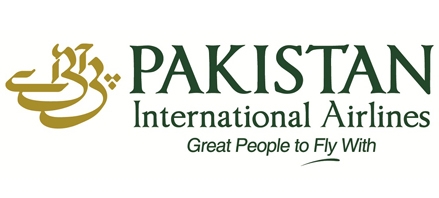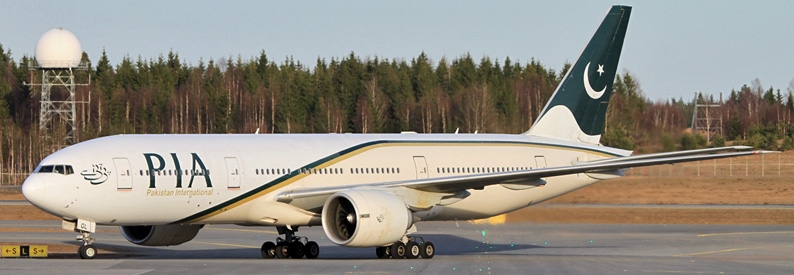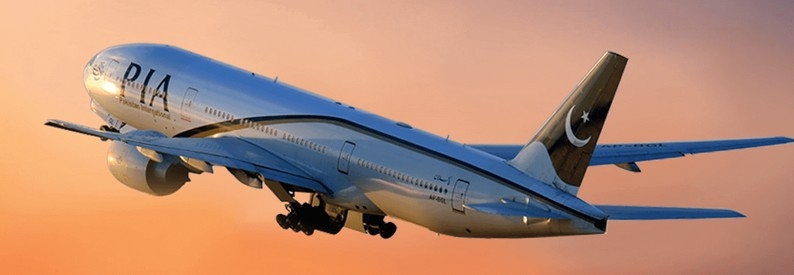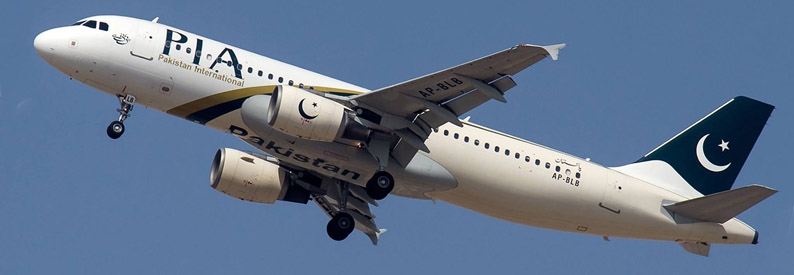PIA - Pakistan International Airlines (PK, Islamabad International) has grounded around 150 out of its 426 pilots amid suspicions that they hold “dubious” licences, company spokesman Abdullah Hafeez Khan told local media and the Reuters and AFP news agencies on June 25.
The move came as the country’s aviation minister presented before the parliament a preliminary inquiry into the crash of a PIA A320-200 in Karachi on May 22, killing all but two of those on board. The minister, Ghulam Sarwar Khan, also highlighted other irregularities at the flag carrier.
The inquiry pointed to the pilots and air traffic control not following procedures at the time of the accident. The voice recorder suggested that the pilots had been distracted by a conversation about the Covid-19 virus.
“An investigation conducted by the civil aviation authority has found that about 150 of our pilots have dubious licenses,” the spokesman told Reuters.
He told the news agency AFP that a probe had uncovered that about 150 of its pilots had “either bogus or suspicious licences”.
Some flights may be cancelled as a result, Khan told the Pakistani newspaper Dawn, but safety takes precedence over commercial concerns, and only pilots with impeccable records and clear credentials will operate flights.
“Those found at fault will be terminated from service after following due process,” he added.
The aviation minister later said that 262 out of 860 active pilots in the country "did not take the exam themselves" and had paid someone else to sit it on their behalf.
The investigation into pilots’ qualifications in Pakistan began in 2018, though little is known about it, according to the BBC. Since 1965, PIA has suffered ten major crashes and several minor incidents. The probe found that the test date on one licence had been a holiday, while another pilot had been out of the country on the date stamped on the certificate, Khan told Reuters.
Patronage politics has led to large-scale recruitments over the years, making the carrier one of the most overstaffed airlines in the world, the BBC reported. Both it and the Pakistan Civil Aviation Authority are dominated by serving or retired Pakistan Air Force (PAF) officers.
The ch-aviation fleets module shows that PIA currently operates eleven A320-200s, six B777-200ERs, two B777-200LRs, and four B777-300ERs, five ATR42-500s, and five ATR72-500s. Besides domestic routes, the airline flies to 13 countries in the Middle East, Europe, and Asia.
Both the International Air Transport Association and the European Union Aviation Safety Agency said that they were seeking more information on the matter.
In related news, PIA CEO Arshad Malik, himself a PAF air marshal, said on June 24 that the carrier had implemented an “across-the-board cut” in pilots’ salaries to avoid layoffs, the Pakistan Press International news agency reported. In a letter to the secretary of the Pakistan Airline Pilots’ Association, he said that PIA was operating at only 10% of pre-Covid levels and that in these circumstances the airline’s survival would be prohibitively expensive.
“We have decided not to go for layoffs, as is being done in the airline industry. We are taking measures to reduce the impact of the huge revenue decrease, which includes certain temporary measures,” Malik said.




Editorial Comment: Added affected number of pilots in Pakistan as a whole. - 30Jun2020 - 09:03 UTC